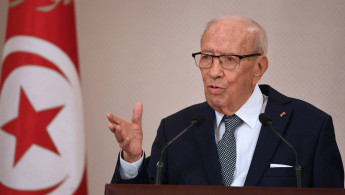Tunisia commission proposes reforms strengthening women's and LGBT rights
A Tunisian presidential commission on Wednesday unveiled a proposal for a series of liberalising reforms that are expected to spark fierce opposition from conservative Muslims in the North African country.
The proposals from the commission were set up by President Beji Caid Essebsi to bring the legal code in line with a 2014 constitution after the 2011 uprising toppled longtime strongman Zine El Abidine Ben Ali.
The constitution was praised as a key achievement following the uprising.
Among the 230 pages of proposals include scrapping inheritance laws that see women receive only half of what men get. The commission's preference is to introduce equality between male and female relatives, but leave room for individuals to divide up what they leave behind as they see fit.
The proposals also include decriminalising homosexuality and banning anal tests conducted on men suspected of being gay.
Twitter Post
|
The "total abolition" of the death penalty has been put forward, as have changes to a law forcing widows to wait before remarrying.
The head of the commission Bochra Belhaj Hmida said the reforms are aimed at boosting the "well-being of every individual," insisting that "freedom is as important as bread".
But imam Sabri Abdelghani, from an association of faith groups, railed to AFP that the changes would "eradicate Tunisian identity, by leaving the people without religion" in the majority-Muslim nation.
One religious leader slammed the proposals as "intellectural terrorism".
Tunisia is seen as a rare democratic success story of the Arab Spring compared with other countries that went through the uprisings, which are either still mired in chaos or have slipped back into authoritarianism.
The North African country has also traditionally been a trailblazer in promoting equal rights in the Arab world.
In September, the government scrapped a law that prohibited Tunisian Muslim women from marrying non-Muslim men, a significant step in loosening the tight controls over women's life choices.
The government is also visibly taking steps to address the country's epidemic of gender-based violence, passing a landmark law in July which meant that rapists could no longer escape punishment by marrying their victims. Similar laws were also passed in Lebanon, Morocco, Egypt and Jordan.
Follow us on Twitter: @The_NewArab





 Follow the Middle East's top stories in English at The New Arab on Google News
Follow the Middle East's top stories in English at The New Arab on Google News
![Netanyahu furiously denounced the ICC [Getty]](/sites/default/files/styles/image_330x185/public/2024-11/GettyImages-2169352575.jpg?h=199d8c1f&itok=-vRiruf5)
![Both Hamas and the Palestinian Authority welcomed the ICC arrest warrants [Getty]](/sites/default/files/styles/image_330x185/public/2024-11/GettyImages-2178351173.jpg?h=199d8c1f&itok=TV858iVg)
